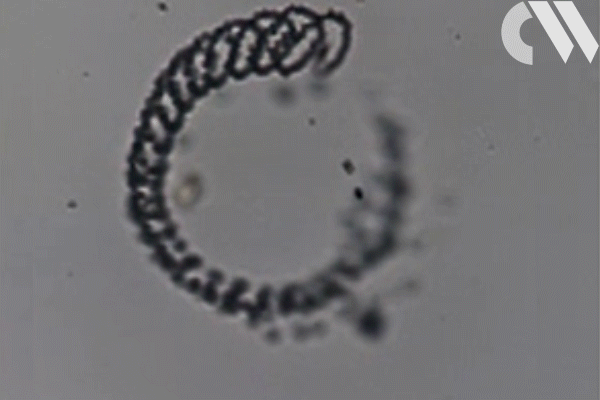
Will Bergius
I am a publishing editor at the Royal Society of Chemistry, working on the sustainability portfolio of journals: Energy & Environmental Science, Sustainable Energy & Fuels, Green Chemistry and Catalysis Science & Technology. My favourite part of the job is the enormous breadth of interesting science from all over the world that crosses my desk every day. Energy and sustainability are both vital to our future, and it is amazing to witness the multitude of creative and elegant ways in which scientists continue to push back the boundaries of our knowledge in these areas.
Following my Masters in chemistry, I stayed on at Durham University to do a PhD researching polymer additives to improve the performance of hydrogen fuel cells. My interest in science writing and communication led me to embark on a career in publishing at the RSC, through which I have been fortunate enough to have the opportunity of writing for Chemistry World.
 Research
ResearchSaliva test uses surface imprinting to recognise Zika
Sensor matches surface roughness of its electrode with Zika’s dimensions and generates results within 20 minutes
 Research
ResearchDoing away with membranes from the chloralkali process
Cost-effective and scalable electrochemical cells rely on inertial separation mechanism, rather than membranes, to keep products separate
 Research
ResearchPlastic packaging waste upcycled into technical materials
Process takes on plastic recycling challenge by turning food packing into heat conducting and electromagnetic shielding material
 Research
ResearchPrecipitating salt shrinks ionic battery
Salt precipitation method dispenses with the need for a mechanical pump, leading to smaller, cheaper aqueous ionic batteries
 Research
ResearchQuick test on pinprick of blood could help stop Ebola in its tracks
Portable Raspberry Pi-based device accurately detects viruses in micro droplet of whole blood
 Research
ResearchResponsive nanoparticles target sight-stealing fungus
Eye drop tricks fungal eye infection into self-destruction
 Research
ResearchNanotubes make Kevlar armour smarter
Conducting composite senses damage and stiffens on impact
 Research
ResearchBiofuels from cedar oil get diamond performance upgrade
Tricyclic sesquiterpanes and alkyl diamondoids give renewable fuels the potential to outperform conventional fuels
 Research
ResearchMetal-guzzling plants harvested to make nanomaterials
Vegetation that cleanses contaminated soil adds to its virtues
 Research
Research3...2...1... micro-ignition!
Scientists design microrockets with first ever built-in delayed ignition system
 Research
ResearchHPLC-free synthesis slashes protein production time
Tagging system may make building biologically relevant proteins faster, cheaper and greener

 Research
ResearchSolar-powered desalination produces energy
Silver, silica and titania nanocomposite converts seawater into pure drinking water and hydrogen gas


 Research
ResearchSolar cells firing on all cylinders
Cylindrical solar cells have better efficiencies throughout the day, independent of the angle of the sun
 Research
ResearchSalting out artificial photosynthesis
Photoelectrochemical system theorised to produce high concentrations of liquid ethanol from carbon dioxide
 Research
ResearchNew cathode material for sodium ion batteries
The fixed layered structure of the mineral eldfellite make it ideal for sodium in-plane diffusion
- Research
Chemical clarification for lobster colour change on cooking
Evidence supports new theory underpinning dark blue to pink-orange transformation
 Research
ResearchNext generation lithium–sulfur batteries given DNA boost
Functionalising electrodes with DNA significantly enhances performance